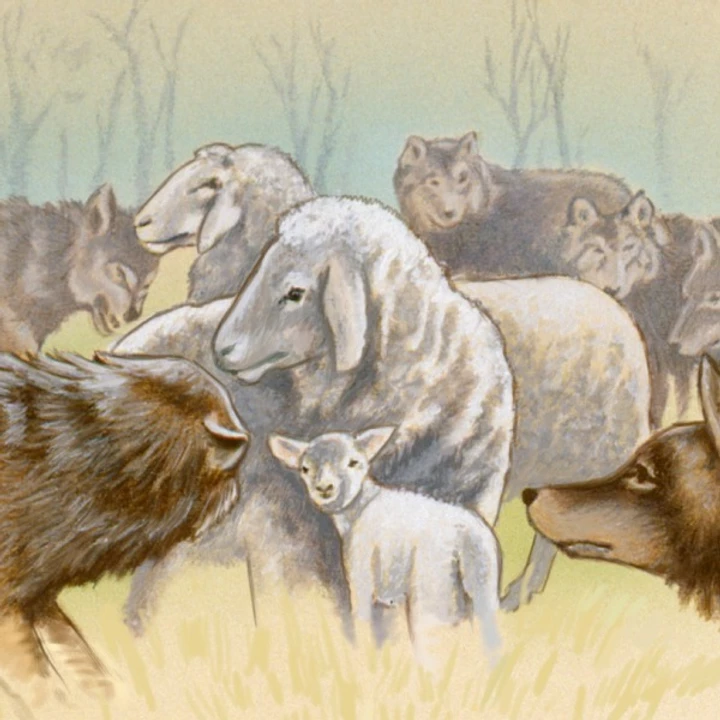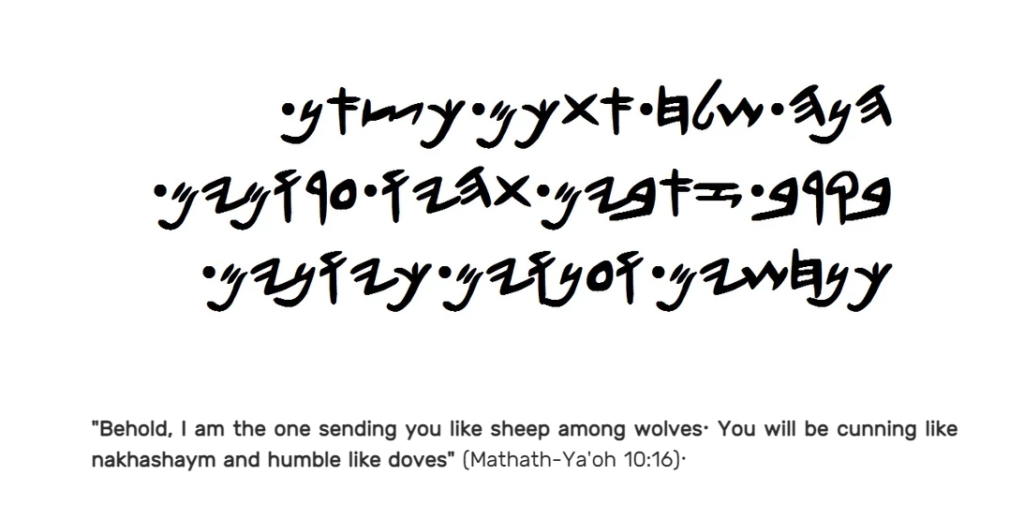

Notice he didn’t say “be harmless” as doves. The satanic Greek version makes him say “harmless” (ἀκέραιος) and that is not what he said according to the Ebionite Hebrew Matthew. He told them to be “humble” (ענה) as doves. There’s a big difference. Doves are not harmless. Try taking one of its eggs from its nest and watch what happens to you. They turn their entire little body into a weapon.
As for snakes, although there are some highly intelligent reptiles, the snake is dumb. It will not be going into Mensa International, or MIT, or Harvard University anytime soon. This has nothing to do with the small size of its brain. It’s the nerve density which is lacking in snakes that makes it not the brightest light bulb on the tree among groups of reptiles.
Snakes are instinct based animals, no brains needed. It is instinct that makes snakes good at tracking and luring prey so they can eat once a week. Besides that, the only thing snakes want to do is be in a dark, quiet place to hide. The snake is also cowardly in the face of danger. It’s first line of defense is to run to safety and hide among rocks or vegetation. It usually only attacks and bites when it feels that it has no way of fleeing and escaping from danger.
So why would the messiah tell his men to be as cunning/smart/intelligent/wise as “snakes” when snakes are actually stupid and fearful of danger?
The Greek New Testament lover will answer this question by saying that we can be as wise as snakes by perceiving and avoiding danger by running from it!
I don’t think so. Can a sheep outrun a wolf? No. Can a snake? No.
By “wolves” he meant his own people are the wolves. To be a sheep and survive among our own dysfunctional people his men needed to be as smart and as cunning as our common enemy, the oppressor. They needed to think five moves ahead like the oppressor does, and move like the oppressor does, because that’s how they were going to outsmart the wolves out there at that time.
Be humble, merciful, forgiving, and loving, but also be calculating, scheming, and harsh when necessary. Otherwise your humility and your kindness will be mistaken for weakness and you will be food.
Here’s where it gets interesting, at least to me.
He was only telling his men to behave this way while they were living under Roman rule in the land, and while they were going about their own cities in the land (Mat 10:23). That’s because our people were so quick to turn on each other back then (and still are). So the “snakes” in Mat 10:16 are the Romans and he wanted his men to be as cunning as the Roman oppressor in order to be able to navigate among our own people who are the wolves.
He knew the Romans would exploit our disunity, destroy our nation in a great war (Mat 24:1-2), and scatter our people out of the land. This happened in the years 5295-5302 (66-73 AD).
He also knew you would lose your memory among the nations. This is clear when he quoted Zachar-Ya’oh (Zechariah) 13:7 in Mat 26:31 which talks about the sheep being scattered after the shepherd is smitten. The ability of sheep to remember slowly weakens and fades progressively over time and so it must be reinforced with daily interaction among fellow grazing sheep and the shepherd. Scattered sheep will lose their recollection until it is completely forgotten. They can’t recognize each other anymore. That’s what happened to you. That’s what happened to our people. Read Deuteronomy 32:26.
But he said the “gates of sha’ol” would not prevail against you (Mat 16:18), which means you would eventually wake up, overcome your collective amnesia, and climb out of the pit. And you have.
Now that you’re back on the scene and out of the pit, are you supposed to pick up where you left off and resume being sheep among wolves, cunning like nakhashaym, and humble like doves?
Only until you exit the lands of your oppressor.
When you come together in the second wilderness you will not need to be looking over your shoulder and worrying about what your “brother” may be doing against you. You will not be sheep among wolves because there will be no wolves.
This is what his parable of the “ten maidens” is about in Mat 25:1-13. Five of them were lazy fools and five of them were alert and wise. All of them were waiting TO LEAVE the place they were in in order to go forth to a wedding celebration.
All of them had lamps. The foolish maidens didn’t have enough oil. The wise ones did. While they were waiting to leave that day and it was getting late, they finally heard the announcement that the wedding was about to start. The wise maidens lighted their lamps and the foolish ones asked them to give them some of their oil so they could light theirs because their lamps had gone out while they were all waiting during the day.
Were the wise maidens merciful and humble like doves? No. They said you gotta go buy your own oil because we are not going to end up like you and run out of oil. Maybe on any other day they would have given them oil, but not on that day. Not when it was time to leave. So while the foolish maidens went to buy more oil, the gates of the wedding hall were closed shut and they were not allowed entry because they were not on time.
The Greek version CHANGES words in verse 13. The Greek says:
“Watch therefore, for ye know neither the day nor the hour wherein the Son of man cometh” (1611 Queen James Version).
But this is not what he said. This is what he said:
“Therefore, be on your guard, because you do not know the day and the watch when the bridegroom will come.”
The bridegroom in the parable is YA’OH, not the Son of man, and the wedding takes place in the second wilderness. That is where YA’OH betroths His people to make them His wife again according to the prophets. Read Hoshai (Hosea) 2:14-20.
All ten women in the parable knew the day the wedding was to take place. They knew the day they were supposed to leave. What they did not know was both the day and the hour of the day. They only knew one part of the date not both parts. The foolish maidens thought it was enough just to know the day. The wise maidens thought differently because only the day and not the hour was made known in advance. So they were prepared.
Only wise maidens get admitted into the wedding ceremony in the second wilderness. No foolish maidens will be allowed. No wolves are allowed. The one who is Above All is not interested in bringing folk that He will have to put down like He did in the first wilderness. The bridegroom is not having it this time around. Many are called but only few are chosen by Him.
His name is YA’OH
Always has been. Always will be.
